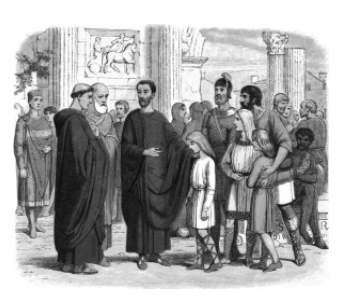I am writing to register a complaint about Clyde Wilson’s review “Neither Devil nor Mystery” (June). My complaint might be unfounded, which I hope it is, since I have found Chronicles to be one of the only magazines to publish excellent and thoughtful articles about unpopular but important topics. But if my complaint turns out to be legitimate, I may have to cancel my subscription.
It seems to me that in his article Dr. Wilson makes the argument that owning slaves is a completely acceptable form of societal structure, and is not explicitly condemned in the Bible. Is Dr. Wilson saying this? If so, I can only state the following from the Catechism of the Catholic Church, which is part of a larger discussion about the Seventh Commandment in that text:
The seventh commandment forbids acts or enterprises that for any reason—selfish or ideological, commercial, or totalitarian—lead to the enslavement of human beings, to their being bought, sold and exchanged like merchandise, in disregard for their personal dignity. It is a sin against the dignity of persons and their fundamental rights to reduce them by violence to their productive value or to a source of profit. St. Paul directed a Christian master to treat his Christian slave “no longer as a slave but more than a slave, as a beloved brother, . . . both in the flesh and in the Lord.”
Like I said before, I hope that my complaint is unfounded and that Chronicles does not support or publish authors who hold such criminal opinions.
—Miles Doyle
via e-mail
Dr. Wilson Replies:
Alas, nothing is more “criminal” these days than not to keep up with the latest interpretation. I plead guilty. The Catholic Church never condemned domestic servitude as it existed in North America for over two centuries, not to mention that it has lived comfortably with various forms of hierarchy and servitude in the Old World for two millennia. In fact, American Catholics were more numerous, influential, and accepted in the antebellum South than in the North, and American Catholics North and South tended to deplore abolitionists, who were mostly fanatical ex-Protestant Unitarians. A new Catholic “history” has been invented by later immigrants wanting to be good Americans, who, they fancy, have always been antislavery. Saint Paul sent the servant back to his master and told both of them to behave better in the future. There are no lessons in egalitarian democracy in the Bible, at least the one I read.



Leave a Reply